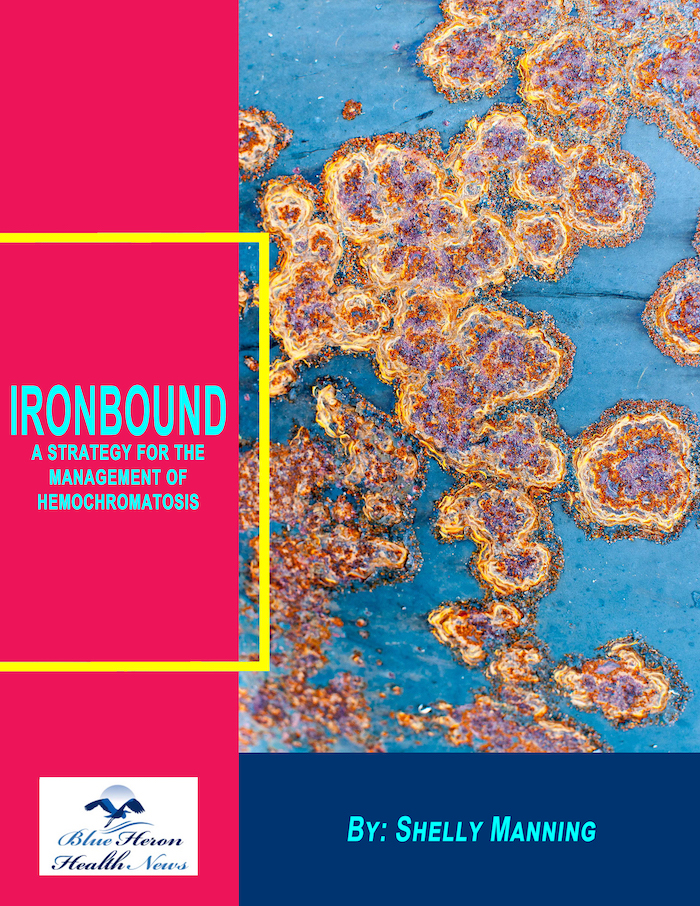Ironbound™ A Strategy For The Management Of Hemochromatosis By Shelly Manning if you are suffering from the problems caused by the health condition of HCT due to excess amount of iron in your body then instead of using harmful chemical-based drugs and medications you are recommended to follow the program offered in Ironbound Shelly Manning, an eBook. In this eBook, she has discussed 5 superfoods and other methods to help you in reducing the level of iron in your body in a natural manner. Many people are benefited from this program after following it consistently.
What is oxidized cholesterol?
Oxidized cholesterol refers to cholesterol molecules that have undergone oxidation, a chemical process in which oxygen molecules interact with cholesterol, typically in the presence of free radicals or other reactive oxygen species (ROS). This transformation can lead to a range of biochemical changes, which may contribute to various health problems, particularly in relation to cardiovascular disease.
Key Concepts about Oxidized Cholesterol:
- Cholesterol and Its Role in the Body:
- Cholesterol is a waxy, fat-like substance essential for producing cell membranes, hormones, vitamin D, and bile acids.
- It circulates in the bloodstream in two main forms:
- Low-density lipoprotein (LDL): Often referred to as “bad cholesterol” because high levels are associated with increased risk of atherosclerosis (plaque buildup in arteries).
- High-density lipoprotein (HDL): Often referred to as “good cholesterol” because it helps transport cholesterol away from arteries back to the liver for processing.
- What Is Oxidized Cholesterol?:
- Oxidized cholesterol is LDL cholesterol or other forms of cholesterol that have been chemically altered due to oxidation.
- This process occurs when LDL particles interact with free radicals or oxidants in the body, leading to the modification of the cholesterol molecule. These oxidized forms are more damaging than unoxidized cholesterol.
- How Oxidation of Cholesterol Occurs:
- Oxidative stress plays a significant role in the oxidation of cholesterol. Oxidative stress is a condition in which there is an imbalance between the production of free radicals (unstable molecules) and the body’s ability to neutralize them.
- Factors like unhealthy diet, smoking, environmental toxins, and chronic inflammation can increase oxidative stress, leading to the oxidation of cholesterol.
- Health Implications of Oxidized Cholesterol:
- Atherosclerosis: Oxidized cholesterol can contribute to the formation of plaque in the arteries by triggering inflammation and immune responses. This process leads to the narrowing of blood vessels, increasing the risk of heart attacks, stroke, and peripheral artery disease.
- Endothelial Dysfunction: Oxidized cholesterol may damage the endothelium, the thin layer of cells that line blood vessels. This can impair blood vessel function, making it easier for plaque to accumulate and causing high blood pressure.
- Inflammation: Oxidized cholesterol is believed to stimulate the immune system, leading to an inflammatory response that can worsen cardiovascular disease and other related conditions.
- Oxidized Cholesterol in Foods:
- Cholesterol in food, especially from animal sources like eggs and meat, can become oxidized during cooking, especially at high temperatures (e.g., frying, grilling, or barbecuing).
- When consumed, oxidized cholesterol may enter the bloodstream, contributing to increased cardiovascular risk.
- Detection of Oxidized Cholesterol:
- Specific markers for oxidized cholesterol can be detected in the blood, though routine testing for oxidized cholesterol is not commonly performed in clinical practice. Some tests measure oxidized LDL (oxLDL), which reflects the degree of oxidation of cholesterol in the bloodstream.
Risks of Oxidized Cholesterol:
- Increased Risk of Cardiovascular Diseases: The presence of oxidized cholesterol in the bloodstream is a major risk factor for the development of atherosclerosis, which can lead to heart disease, stroke, and peripheral vascular disease.
- Insulin Resistance and Diabetes: Oxidized cholesterol may play a role in insulin resistance, a precursor to type 2 diabetes, by causing inflammation and interfering with normal metabolic processes.
- Cellular Damage: Oxidized cholesterol can also cause damage to cell membranes, contributing to cell death, which is implicated in many diseases, including neurodegenerative conditions like Alzheimer’s disease.
How to Reduce Oxidized Cholesterol:
- Healthy Diet: Consuming foods rich in antioxidants (like fruits, vegetables, and whole grains) helps reduce oxidative stress. These foods can neutralize free radicals and protect cholesterol from oxidation.
- Omega-3 Fatty Acids: Eating foods high in omega-3 fatty acids (like fatty fish, flaxseeds, and walnuts) may reduce oxidative stress and lower levels of oxidized cholesterol.
- Avoiding Smoking and Excessive Alcohol: Both smoking and excessive alcohol consumption increase oxidative stress and can contribute to higher levels of oxidized cholesterol.
- Regular Exercise: Exercise can help reduce oxidative stress, improve HDL cholesterol levels, and reduce the amount of oxidized cholesterol in the bloodstream.
- Antioxidant Supplements: Some studies suggest that antioxidants like vitamin E and vitamin C may help protect against oxidation, though more research is needed on their direct role in reducing oxidized cholesterol levels.
Conclusion:
Oxidized cholesterol is a modified form of cholesterol that results from exposure to free radicals and oxidative stress. It is more harmful than regular cholesterol and plays a critical role in the development of atherosclerosis and other cardiovascular diseases. Reducing oxidative stress through a healthy diet, regular exercise, and lifestyle modifications can help prevent cholesterol oxidation and its associated health risks.

Ironbound™ A Strategy For The Management Of Hemochromatosis By Shelly Manning if you are suffering from the problems caused by the health condition of HCT due to excess amount of iron in your body then instead of using harmful chemical-based drugs and medications you are recommended to follow the program offered in Ironbound Shelly Manning, an eBook. In this eBook, she has discussed 5 superfoods and other methods to help you in reducing the level of iron in your body in a natural manner. Many people are benefited from this program after following it consistently.